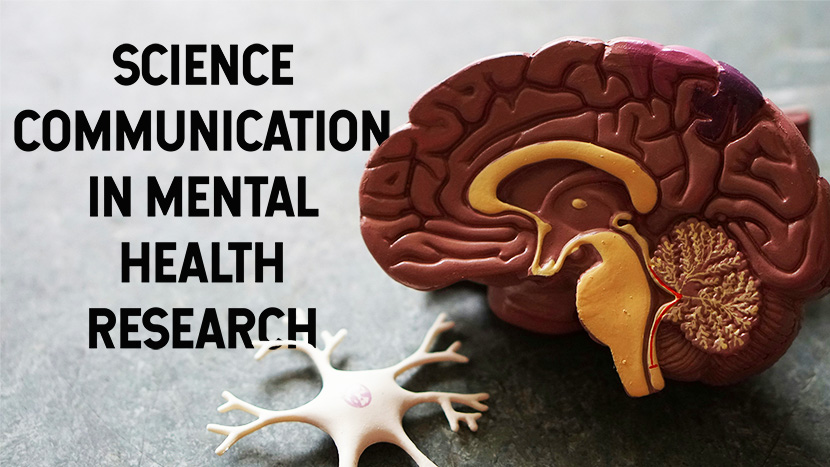How Science Communication Can Benefit Mental Health Awareness
Science communication, sometimes called “scicomm” for short, now takes center stage in mental health awareness. With rapid advancements in 2024, connecting scientific research to everyday life can improve public understanding of mental health challenges.
When it comes to communicating about research in mental health, researchers and communicators collaborate to make complex ideas accessible. This builds a bridge between knowledge and practical support, benefiting everyone.
More than ever, scicomm in mental health can provide clear information that helps reduce stigma and empowers individuals to seek help confidently.
By demystifying science, we create a more compassionate society for all.
The Role of Digital Platforms in Mental Health Communication
Digital platforms revolutionize how we approach mental health communication. They offer accessible, real-time information that reaches diverse audiences globally.
From social media giants to specialized mental health apps, these platforms break down barriers. They provide education and support at the touch of a button.
Through interactive and engaging content, digital tools demystify mental health issues. This promotes understanding and reduces stigma.
The online world has become a vital space for fostering open conversations about mental wellness.
Leveraging Social Media for Mental Health Awareness
Social media platforms like Instagram, TikTok, and Twitter play crucial roles in spreading mental health awareness. Influencers use these spaces to share personal stories, expert insights, and practical tips.
Instagram hosts accounts such as @the.holistic.psychologist which shares therapeutic advice in easily digestible posts. TikTok sees therapists providing bite-sized psychoeducation through creative videos. These approaches engage users with short attention spans effectively.
Moreover, campaigns like BellLetsTalk on Twitter promote conversations about mental health on a global scale. This hashtag raises funds for services while encouraging open dialogue.
Social media’s visual and interactive nature makes it an excellent tool for breaking down complex ideas into understandable chunks, making scientific knowledge more approachable than ever before.
The Impact of Podcasts and Webinars on Public Understanding
Podcasts such as “The Happiness Lab” by Dr. Laurie Santos delve into the science behind well-being through engaging discussions with experts from various fields.
These audio shows offer deep dives into topics that listeners can absorb at their own pace, during commutes or workouts. Webinars hosted by organizations like Anxiety & Depression Association of America present live sessions where viewers learn directly from researchers or practitioners.
This format allows real-time interaction via Q&A segments making it feel personal yet informative. Such initiatives create pathways for learning without geographical constraints highlighting digital platforms’ unique ability to democratize access to valuable information.
Science Communication in Educating About Specific Mental Health Disorders
Effectively communicated science serves as a powerful tool for educating the public about specific mental health disorders. Understanding conditions like depression, anxiety, bipolar disorder, and schizophrenia is crucial in reducing stigma and promoting empathy.
Science communicators work tirelessly to translate complex research findings into accessible information. By doing so, they ensure that people from all walks of life can grasp the nuances of these conditions.
As just one example, when you learn about psychiatric service animals through clear communication channels, it’s easier to understand their vital role and also how you can (and can’t) interact with them.
Furthermore, consider how well-crafted articles and engaging videos can demystify depression by explaining its biological basis. They explore neurotransmitter imbalances without overwhelming the audience with jargon. Similarly, educational campaigns about anxiety often use real-life examples to illustrate how it manifests differently in individuals.
The stories behind these services illuminate how targeted support can significantly enhance quality of life for those struggling with mental health issues.
One shining example lies in advocacy for supportive measures such as psychiatric service animals. These highly trained animals provide companionship and assistance tailored to their owner’s needs.
For instance, someone with PTSD might have a service dog that interrupts flashbacks or panic attacks on cue.
By breaking down barriers between scientific knowledge and everyday understanding, we empower communities and foster greater compassion and empathy towards mental illness.
Looking Ahead: Embracing Science for a Healthier Future
As we advance, science communication continues to play a pivotal role in mental health awareness. Clear, accessible information empowers individuals and supports destigmatization.
Innovations will further enhance our understanding and acceptance of mental health challenges.
By embracing these advancements, we create a society that values empathy and support. Together, we can build a future where mental wellness is openly discussed and effectively managed for all.


































































































